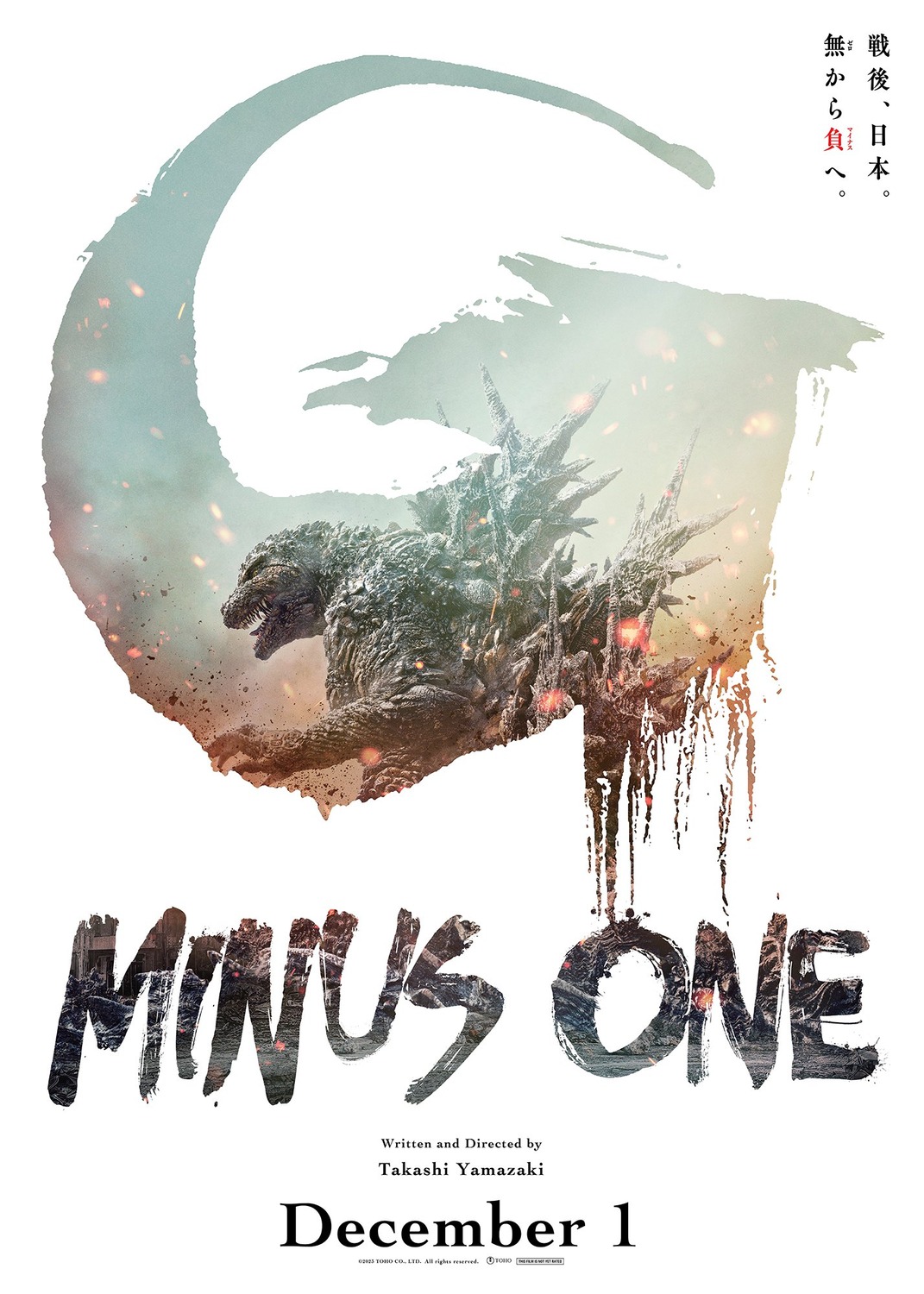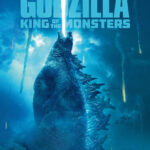Director
Takashi Yamazaki
Starring
Ryunosuke Kamiki
Minami Hamabe
Godzilla Minus One opens in the final days of World War II as a kamikaze pilot, Koichi Shikishima [Kamiki] lands on Odo Island, reporting a problem with his plane. However, the chief engineer, Tachibana [Munetaka Aoki] can’t find a fault and comes to the conclusion that Koichi is in fact, a coward. Before the young pilot can be properly reprimanded, the island is attacked by a ferocious prehistoric creature that the locals call Gojira/Godzilla. This monster, however, is much more agile and dinosaur like than we’ve seen in other films, and it kills the majority of the unit before retreating. Koichi then returns home to a devastated Tokyo and reluctantly takes in Noriko [Hamabe] and the orphaned child in her care, Akiko. Life begins to very slowly resume but nuclear testing in Japanese waters has affected Godzilla and a few years later, the now significantly larger beast has resurfaced and is setting its sights on Tokyo.
I feel I open most Godzilla reviews with a comment on the franchise’s long-running duality – whether to focus on a campy monster brawl, or a dark horror film with a strong message. And, in truth, the best Godzilla films manage to cleverly address both – with Godzilla Minus One having this formula down to a tee. And that’s because it manages to pair destructive carnage with a genuinely compelling human plot. Essentially providing a gorgeously shot post-war period drama that happens to have a big old monster stomping through it. And on such a limited budget, it’s frankly miraculous how much this movie achieves. Not only with jaw-dropping visuals and production design, but through the film’s conveyance of devastation with attention to the weight of the carnage as much as spectacle. In other words, it’s as gut-wrenching as it is cool. Which is no easy feat.
And speaking of the eponymous kaiju, Godzilla is analogous, always has been. The question is which destructive force it’s representing for the audience of the day. From the heartache of nuclear devastation to the unstoppable effects of climate change, Gojira has represented a lot. Here, Godzilla is treated as a spectre of the horrors of war, a PTSD riddled dreamlike reminder that haunts and terrifies those who have seen combat. One could argue this is true of most Godzilla iterations, but in this narrative, there’s a distinctly personal connection. Koichi carries the shame, grief and guilt of a survivor – quite literally as he holds onto the photos of those who died on Odo Island. There are even some notable similarities to the comic Godzilla: Half Century War, but with a stronger focus on redemption and revenge than recognition. Again, something that is accentuated thanks to the amazing balance of slow, sombre, post war sobriety peppered with some rampaging Godzilla fury. Not to mention, as the film hits its highest highs and lowest lows, Naoki Sato’s score operates with keen precision. Feeling like a celebration of what has come before while making its own air-raid siren infused haunting mark.
Another interesting point, and one which could have utterly broken this movie, is the late 1940s setting. On paper it’s an inspired idea: to take Japan when it was at its most crushed and throw another disaster on it (hence the title: Minus One) is an incredibly bold and compelling take. That said, there’s always a bit of fear and trepidation when any nation injects a militaristic angle into a fantastical movie. But the route the movie takes is a pleasing one. I.e. anyone touched by the grip of war is a victim of the systems and fallout of war. Meaning we end up with a story that is far from a glorification of war but unfortunately not a real apology for the atrocities committed either. The central point being made is how those at the top failed those who were called to fight. And through multiple scenes and conversations, Godzilla Minus One has an entirely anti-war message. At one point, the monster attack is dismissed by the US who are more preoccupied with Soviet posturing, and there is a notable distrust of the Japanese government; leading to matters being taken into the hands of veterans and civilians. All of which is wreathed in conversations of reflective disappointment. Noting, “this country has treated life far too cheaply” before listing things like badly shielded tanks, kamikaze runs, and poor supply planning, etc. that hammers home the underlying principle that war is hell.
There’s really no other way to say it. Godzilla Minus One is a perfect Godzilla film…. unless you want wall-to-wall kaiju smashing. In which case you’ll be disappointed as there’s only four scenes for you to sink your teeth into. But, in my opinion, Yamazaki has created an earnest tale, more solemn and stern than something like Godzilla: Final Wars and more straightforward and approachable than Shin Godzilla. In essence, a bleak and beautiful diatribe against the horrors of war. And, for me, that’s peak Godzilla.
Release Date:
15 December 2023
The Scene To Look Out For:
Godzilla Minus One is a movie made up of impactful vignettes. Characters being introduced, reunited, problem solving, falling out – it all comes together magnificently. And subsequently, I’m torn between Godzilla charging up his heat ray – which is equally awe-inspiring and formidably spine-chilling – and something more intimate. Like Koichi first returning home to be scolded by his neighbour for not dying when so many others didn’t return, or stayed home and were killed in air raids.
Notable Characters:
The relationship between Koichi and Noriko is an all too familiar one for any nation recovering from disaster. An unlikely pair thrown together through circumstance, slowly becoming enamoured with one another, but keeping themselves at arms length. Maybe out of a sense of self-inflicted punishment or awkwardness. The trouble is, Noriko serves as a primary emotional motivator and pillar throughout the film (as does her adopted daughter Akiko) but the execution doesn’t entirely gel. Regrettably, Noriko is presented more as a semi-underdeveloped reward that Koichi denies himself out of guilt. Which is a shame because his rag-tag boat friends (who are genuinely fantastically performed) have so much personality, charm and presence. I’m not saying Hamabe does a bad performance at all, in fact the opposite, her cradling Koichi and desperately trying to pull him out of his grief, is heartrending. But this just highlights how much more could have been achieved.
Highlighted Quote:
“Not having been to war is something to be proud of.”
In A Few Words:
“A gripping symbolic extravaganza with a surprising, but wholly necessary, amount of genuine heart.”
Total Score: 5/5

![The Red Right Hand Movie Reviews [Matthew Stogdon]](https://reviews.theredrighthand.co.uk/wp-content/uploads/2021/12/cropped-header1.png)



